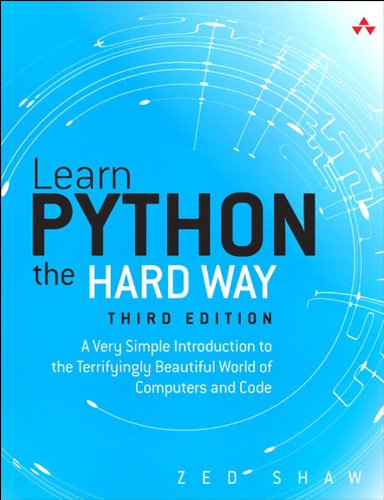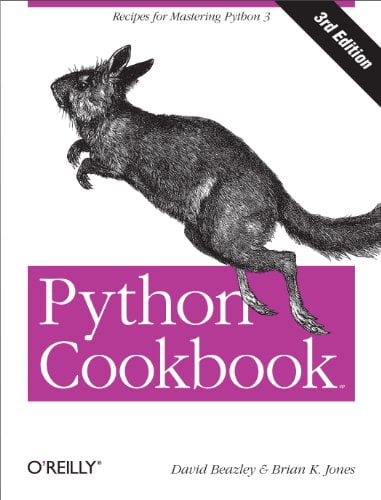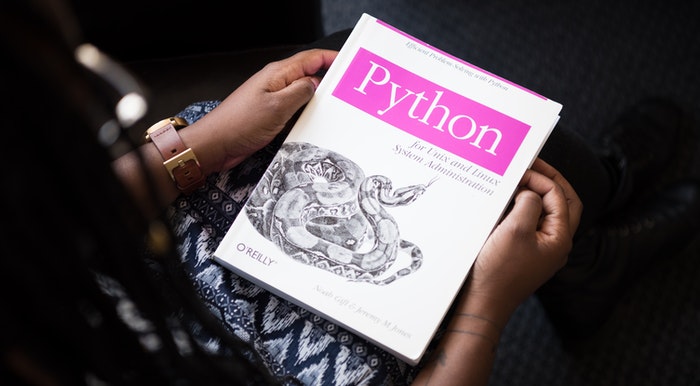This article will be about, which is best books for Python. It’s common to get confused between thousands of resources to learning something so popular like Python.
Therefore, we have compiled a list of the best books for learning Python in the year 2021. People ask me about which Python book they choose if they are a beginner, or if they are pursuing machine learning or even web development.
So I have specifically kept this session clear all those doubts, so they can quickly move into learning face rather than being stuck on researching on the best resources to learn Python.
So, first, we will understand why learning Python is a big deal, and why it is one of the most popular languages these days, and then we will go through Python books for beginners.
After that, we will have a look at Python books for advanced programmers. Then, we will go through Python books for specific domains. And then we will also compare between books and online courses.
Why is Python so important.
Python as an interpreted high level interactive and object oriented scripting language, the current major version of Python3.
Python used everywhere such as development of web applications, machine learning and data science applications, game development and various other fields.
Top python books for beginners.
Let us first discuss the best books for someone who has just started with Python. So the first book is
1. Python Crash Course by Eric matthes

Python Crash Course by Eric matthes is a fast paced and comprehensive introduction to Python language. For beginners who wish to learn Python programming language and write useful programms.
This book aims to get you up to speed fast enough and have your writing real programms and no time at all. There’s 560 pages of long book majorly dissected into two parts.
The first part of the book discusses the major basics of buyten. The second part of the book follows by a practical approach and helps you test your knowledge by presenting three different projects
- an arcade game
- a simple web application
- data visualizations using Python libraries
2. learn Python the way by Zed Shaw

The next book we have learn Python the hard way by Zed Shaw. Third Edition is a collection of 52 correctly collated exercises.
These exercises help you understand the working of the software structure of a well written program and how to avoid and find common mistakes in the code.
The book begins at all by helping you install a complete Python environment in a local system. The book then discusses various topics such as
- basic mathematics
- variables
- strings
- files
- loops
- program design
- data structures
3. Head First Python by Paul Barry

We will move ahead into our next book, which is head first Python by Paul Berry. Head first Python by Paul Barry is a quick and easy fix for you if you wish to learn the basics of Python programming. Without having to slog through counterproductive tutorials and books.
The headfirst Python makes use of visual format rather than text based approach, helping you to see and learn better and faster.
The book helps you in gaining a quick grasp of the fundamentals of Python programming. The book then moves to help you Build your web application,
- Exception handling
- Data wrangling
- Other major concepts
Top python books for advanced programmers
Let us now have a look at the best books aimed at people who are already familiar with Python and are ready to work using the language.
1. Fluent Python by Luciano Ramalho

Fluent Python by Luciana Ramallo is your hands on guide that helps you learn how to write useful Python code by using the most neglected yet best features of the language.
The book covers various concepts including
- data structures
- functions as objects
- object oriented idioms
- control flow
- meta programming
Using this book, advanced Python programmers learn about Python3, and how to become proficient in this version of the language.
2. Python Cookbook: by Brian K. Jones and David M. Beazley

This book will help you to master in your programming skills and Python3, or helping you update older Python two code.
This cookbook is filled with recipes tried and tested with Python 3.3 is the ticket for experienced Python programmers who wish to take the approach to modern tools and idioms. Rather than just standard coding.
The book has complete recipes for a variety of topics covering Pattern Language, and its uses, along with tasks common to many application domains.
3. programming python by mark lutz

programming Python, by Mark lutz is an ideal book for programmers who have understood the fundamentals of Python programming. And ready to learn how to use their skills to get real work done.
This book includes in depth tutorials on various application domains of Python, such as graphical
- user interfaces
- the web
- System Administration
The book clearly explains the commonly used tools, language syntax, and programming techniques through a brief yet precise approach. The book has many examples that show the correct usage and common idioms.
Python Books that focused on particular domains
Now moving ahead, we have our next crucial topic, which is books for specific domains. Let’s now go through a couple of books that focused on particular domains of Python.
1. Introducation to Machine learning with Python

Introduction to Machine Learning with Python by Andreas C. Müller and Sarah Guido, This book teaches you how to use Python programming language to build your machine learning simulations.
Throughout this book, you will learn about steps required to create a rich machine learning application using Python and scikit learn library.
Throughout this book, you will learn about the steps required to create a rich machine learning application using Python and scikit learn library.
You will also learn about the advanced methods for model evaluation and the concept of pipelines, which has for encapsulating your workflow and chaining models.
This book also covers the most popular machine learning algorithms, along with their implementation and Python.
2. Django for Beginners by William S. Vincent
This book is an excellent choice for anyone who wants to build more than web application. It follows a project based approach to learn web development with the Django framework.
In this book, you will build five progressively more complex web applications, starting with a simple
- Hello World app
- progressing into a pages app
- a message board app
- a blog app
- a newspaper app
Django is a framework based on byton and is extensively used as a back end in web applications.
Books versus online courses
Now we will enter into our next major component, which is books versus online courses. We know that people rely on different sources to get information, some prefer books, and other the online courses.
So let’s go ahead and discuss the factors that are involved. Those were all the books that we recommend you to read while learning or working with Python, whether you are a beginner or familiar with Python.
But we all know that some people prefer learning through courses rather than books because they might be habitual, of taking classes, on relevant subjects or for some other reason.
Now, let’s go ahead and compare between the two most popular learning resources that is books and online courses.
First difference
first difference between the books and the online courses is books lay out the foundations, whereas on the other hand, online courses are generally focused on a practical part.
Second difference
books are preferable for the technologies that do not become obsolete too often. Whereas on the other hand,
online courses are preferable for new technologies and industries such as data science, machine learning and artificial intelligence, which are prone to find new updates every day.
Third difference
books need motivation to finish a book on one particular topic. Whereas on the other hand, courses being interactive and easier to complete,I see both sources as complimentary to each other.
Because courses are interactive books provide a solid foundation and possibly more information that helps in the long run.
There you go. By now, you must have got your answer to which Python book to choose whether you’re just starting to code with Python or quite familiar with its concepts.
